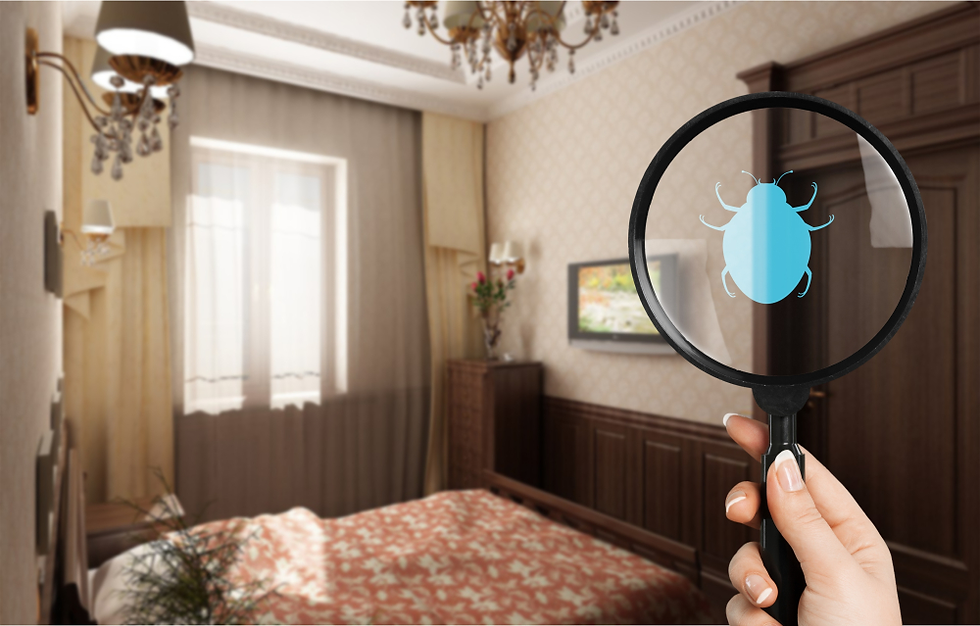Creating A Safe Haven For Our Feathered Friends: An In-Depth Guide To Bird Netting
- Evan Javier
- Jan 16, 2025
- 3 min read
Updated: Aug 18, 2025
Are you a nature enthusiast looking to provide a haven for birds in your backyard, or perhaps a dedicated farmer seeking methods to protect your crops from pesky birds? Or maybe, like so many of us, you're a homeowner worried about bird droppings damaging your property? If you've answered ‘yes’ to any of these questions, then this guide is for you.

Bird netting is an often-overlooked tool that serves a dual purpose; it both protects your space and offers a safe environment for birds. In this guide, we'll delve further into this topic, exploring the ins and outs of bird netting, its various applications, and the benefits it affords.
Why Should We Bird Net?
From farmers to homeowners, bird netting has proven effective in keeping undesired birds away from your desired spaces, whether it be your crop field or your patio. For residential areas, bird netting can prevent waste buildup, maintain the aesthetic appeal of your property, and reduce the risk of disease transmission from birds.
Yet, one of the fundamental reasons for using bird netting is to protect the safety and well-being of the birds themselves. Without effective netting systems, birds can fly into buildings and windows, resulting in fatal injuries.
What is Bird Netting?
Bird netting is a protective mesh or net used to prevent birds from reaching certain areas. It comes in various materials, sizes, colors, and mesh sizes, all designed to suit specific purposes and environments.
Whether it be lightweight, heavy-duty, or nearly invisible netting, all types have corresponding strengths and applications. Light nets are often used for temporary or seasonal protection, while heavier nets are preferred for permanent installations.
How and When to Use Bird Netting?
Timing often plays a crucial role in preventing bird damage. Knowing when certain bird species migrate or breed can provide insight into the best times to install bird netting. For farmers, it's most beneficial to install netting before fruiting seasons.
Knowing how to properly install bird netting is as crucial as knowing when. Ensuring the mesh is taut and secured can make all the difference in its effectiveness.
Who Can Benefit From Bird Netting?
Essentially, anyone cohabiting with birds can benefit from bird netting. Whether it's for agricultural purposes, protecting historical monuments, or safeguarding residential areas, bird netting serves a versatile and purposeful role in society.
Pros and Cons of Bird Netting
Bird netting Melbourne, like any other solution, has its advantages and disadvantages. The most prominent benefit is undoubtedly the preservation of bird life and the reduction of bird-related damage.
However, bird netting can sometimes interfere with the aesthetic quality of a building or landscape and requires meticulous maintenance. Nevertheless, the advantages of bird netting generally outweigh the disadvantages, especially viewed through the prism of long-term effective bird management.
The Modern Take on Bird Netting
In the face of rapidly advancing technology, modern bird netting has evolved significantly. Newer versions come with features like UV stabilization for prolonged longevity, and eco-friendly materials to minimize environmental impact.
Conclusion
With diverse applications, bird netting serves as a non-invasive, humane, and practical means of maintaining a harmonious co-existence with our feathered friends. It is a simple solution that requires initial investment but with potential for long-term dividends, both in terms of damage control and the preservation of bird life.
While bird netting may not be perfect, it is a responsible and caring step towards a harmonious relationship with the natural world, allowing us to appreciate the beauty and diversity of birds, without inviting them to wreak havoc on our properties.







Comments